CORPORATE
STUDENT
ACADEMIC
GOVERNANCE
RESEARCH
QUICK LINKS
The International Congress LivenARCH IX-2025 Hosted by Our University
The Faculty of Architecture at Karadeniz Technical University (KTU) is hosting the LivenARCH IX-2025: PRIORITIES IN / OF ARCHITECTURE International Congress, held between September 25–27, 2025. The congress brings together numerous academics and researchers from the fields of architecture, urban and regional planning, environmental sciences, and related disciplines, offering three days of academic knowledge exchange and experience sharing.
The congress began with its opening program at the KTU Prof. Dr. Osman Turan Cultural and Congress Center. The event was attended by our University’s Rector Prof. Dr. Hamdullah ÇUVALCI, Dean of the Faculty of Architecture Prof. Dr. Cenap SANCAR, members of the organizing committee, academic staff, and researchers.
In his speech, Rector Prof. Dr. ÇUVALCI emphasized that the congress unites researchers from different countries and cultures, noting that the event has gone beyond being “just a congress,” transforming into a dynamic platform for the production of knowledge. The Rector highlighted architecture as a powerful tool that designs livable environments, touches human life, and carries cultural heritage into the future, expressing gratitude to all individuals and institutions who contributed to making the congress possible.
The Theme of “Priorities in Architecture” in Focus
Congress Chair Prof. Dr. Nilgün KULOĞLU underlined that the congress, with its theme “Priorities in Architecture,” serves not only as a platform for knowledge sharing but also as a space for discussing the future of the profession. Prof. Dr. KULOĞLU stated that architecture reflects humanity’s story—from the first shelters to modern skyscrapers—and that today a human-centered approach has come to the forefront: “Buildings are no longer just physical objects; they are seen as ecosystems that interact with their environment and support the people living within them.”
Following Prof. Dr. KULOĞLU, Dean of the Faculty of Architecture Prof. Dr. Cenap SANCAR reminded participants that the congress is structured around the theme “Priorities in Architecture.” He reflected on how architectural priorities have evolved from past to present, their relation to social, cultural, and environmental contexts, and the importance of diverse approaches: “Different perspectives and experiences make diversity and innovation in architecture possible. I believe that this year’s LivenARCH Congress will be enriched by contributions from all areas of the discipline, becoming a vibrant platform for discussion.”
Time and Change in Architecture
After the opening speeches, Prof. Dr. Branko KOLAREVIC from the Hillier College of Architecture and Design at the New Jersey Institute of Technology in Newark delivered his keynote lecture titled “Time and Change in Architecture.” Prof. Dr. KOLAREVIC highlighted the role of digital technologies in architecture and design, sharing insights from his global research and his book “Mass Customization and the Democratization of Design.” Drawing attention to adaptive and interactive architectural practices, he noted: “In today’s projects, structures can respond to environmental changes in real time through the use of sensors and dynamic systems.” He also discussed the importance of integrating concepts of time and change in design, the use of generative AI in architecture, and the relevance of combining contemporary practices with past innovations.
An International Platform for Exchange
LivenARCH IX-2025, running for three days, will provide an international platform for exchange on architecture and livable environments. The first two days feature panels, presentations, and scientific discussions, while the final day will conclude with a field trip for participants. In addition to main hall sessions, the program includes parallel sessions where researchers present their work. Participants will have the opportunity to discuss the evolution of priorities in architecture from past to present and explore roadmaps for the future from an interdisciplinary perspective.
26 September 2025
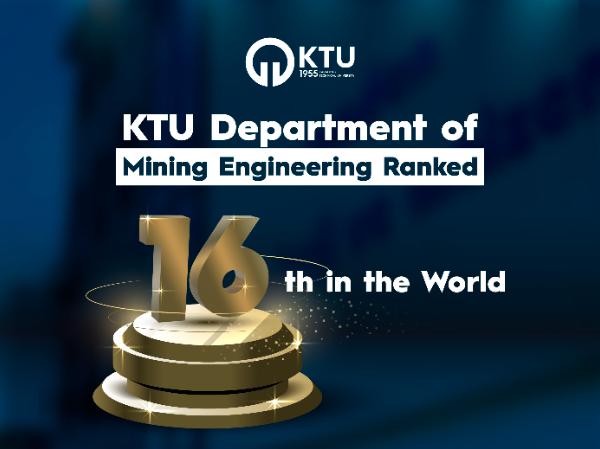
The Department of Mining Engineering achieved a remarkable success by ranking 16th in the world, according to the 2025 data released by the ScholarGPS.
09 December 2025
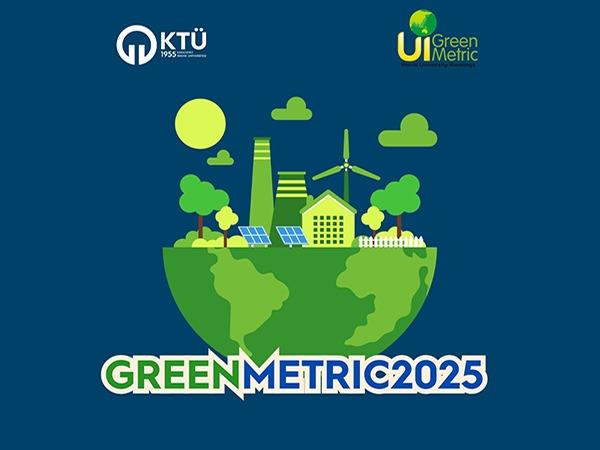
Our University has achieved another significant milestone in the UI GreenMetric World University Rankings.
08 December 2025
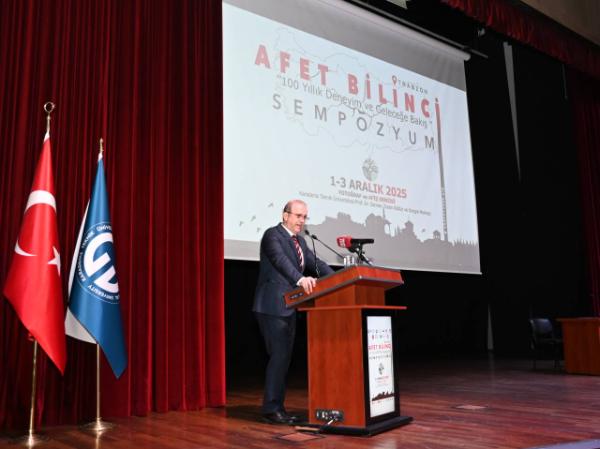
At the "Disaster Awareness: A Century of Experience" Symposium hosted at our university, 10 different themes related to disaster management were addressed.
05 December 2025

The conference was held at the Prof. Dr. Osman Turan Culture and Congress Center with the honored participation of TRNC Speaker of the Assembly Dr. Ziya ÖZTÜRKLER.
04 December 2025
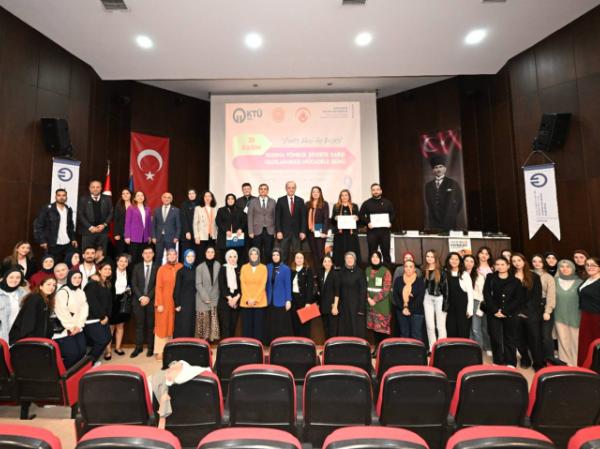
A panel titled "Shared Responsibility from Academia to Society in Combating Violence Against Women" was held at the Prof. Dr. Osman Turan Cultural and Congress Center.
26 November 2025

Our University has achieved remarkable progress in the Quacquarelli Symonds (QS) 2026 Sustainability Rankings.
20 November 2025

The proposal to establish the APİMER at our University has been approved at the Executive Board of Council of Higher Education.
18 November 2025
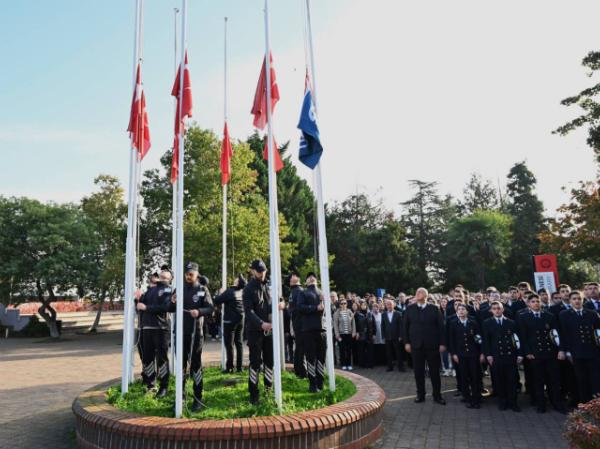
As part of the 87th anniversary of the passing of Gazi Mustafa Kemal ATATÜRK, a commemoration program was held at our university.
11 November 2025
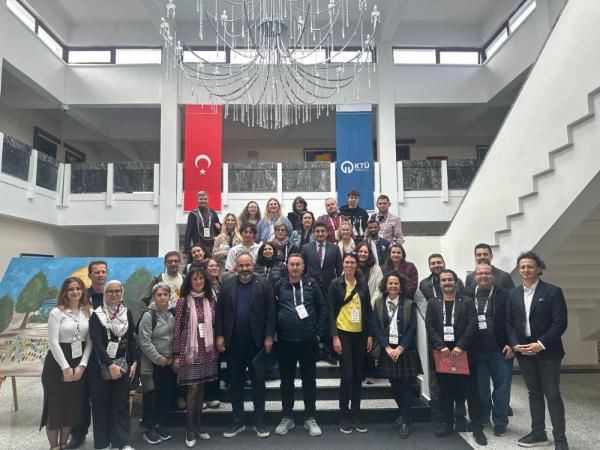
23 representatives from 11 different countries and 15 different universities attended the event during which Karadeniz Technical University and city of Trabzon were introduced.
10 November 2025
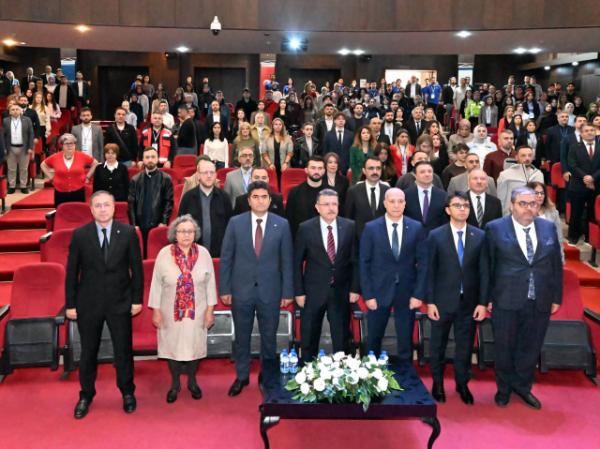
The ?Human Resources Career Congress and Fair? started with an opening ceremony held at the KTU Osman Turan Culture and Congress Center.
06 November 2025

Projects selected for funding under the 5th Term of the University Student Communities Collaboration and Support Program (ÜNİDES) have been announced.
04 November 2025
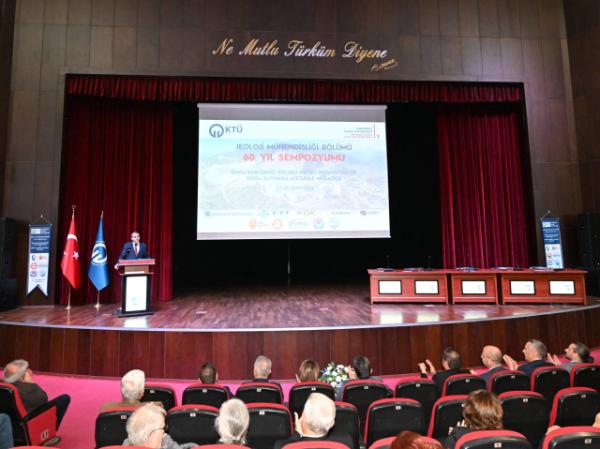
The Department of Geological Engineering at Karadeniz Technical University (KTU) celebrated its milestone with the "60th Anniversary Symposium of Geological Engineering."
04 November 2025
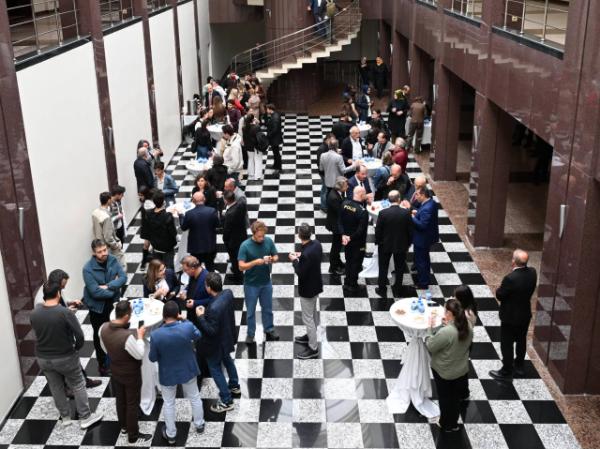
The panel titled "Water and Forest Management in a Changing Climate" was held on October 16?17, 2025, at the Prof. Dr. Osman Turan Culture and Congress Center.
04 November 2025
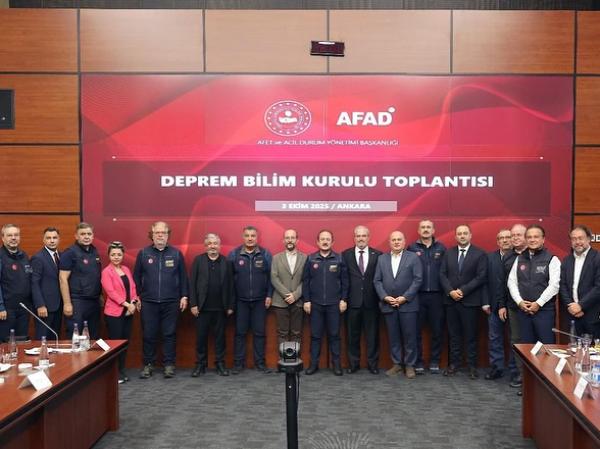
Prof. Dr. Ahmet Can ALTUNIŞIK has been appointed to the Earthquake Science Board of the Disaster and Emergency Management Presidency (AFAD).
07 October 2025
